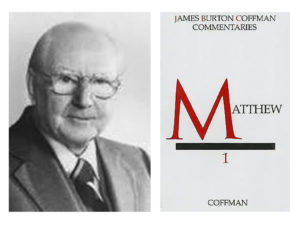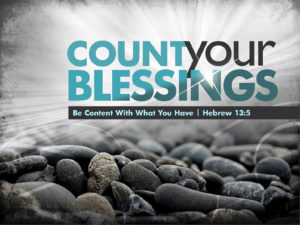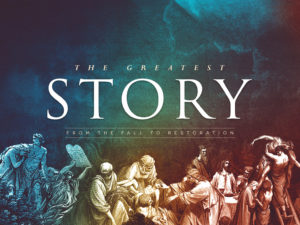Little, But Powerful
 Gary Hampton was my preacher in high school, and later he was the preacher in Valdosta, Georgia where I was a youth ministry intern for a summer in college. He shared an article this week that I think is worth sharing with you. Our words have great power to harm or encourage. Let’s all be careful how we use them – Brian
Gary Hampton was my preacher in high school, and later he was the preacher in Valdosta, Georgia where I was a youth ministry intern for a summer in college. He shared an article this week that I think is worth sharing with you. Our words have great power to harm or encourage. Let’s all be careful how we use them – BrianThe news seems to be filled with people whose tongues are out of control. Bad language and hurtful words are the rule of the day. God’s people must refrain from joining in, because he tells us about the power of that little member of the body.
A rider is able to control a horse by using a bridle in its mouth. Huge ships are turned with a small rudder. A little match can set a massive forest on fire. The tongue is small like a bridle, rudder or match, but it is able to do great things, good or bad. We need to keep control of our mouths lest they damage others or commit us to sinful ways (James 3:3-5; Psalm 39:1).
An uncontrolled tongue is totally wicked and devastating (Proverbs 16:27; 26:18-28). It stains the whole life in its sinfulness. It can set the stage for what emotions lead us to do. Hitler’s tongue led the whole world to war. The tongue’s fire is so destructive it can only be set on fire by hell, the place God prepared for the devil and his angels (James 3:6; Matthew 25:41).
Men use the tongue to praise God (Ephesians 5:19; Hebrews 13:15; Romans 10:9-10). Yet, the same tongue is used to pronounce curses on men, effectively praying to God to cause evil to fall down on them. The one who loves God must show it through his display of love for his fellow man, who is made in the image of God (James 3:9; 1 John 4:20-21; Matthew 25:31-46; Genesis 1:26).
Praising God and cursing man with the same tongue is as contradictory as a fountain giving sweet and bitter water at the same time. It is as absurd as a fig tree bearing olives, a vine producing figs or a fountain producing fresh and salt water (James 3:10-12).
Our mouths tell others what is in our hearts (Proverbs 4:23; Matthew 15:18). Getting our hearts right with God will result in good words coming from our lips to or about our fellow man.
Gary C. Hampton
Groundhog Day
 We have holidays in America to recognize or remember presidents, historical figures and significant events among other things. One of the most unique and odd holidays occurs this weekend: Groundhog Day. Dating back to the late 1800’s, the most famous resident of a small town in Philadelphia lives in a hole in the ground. On February 2, everyone waits to see if Phil, the groundhog, will see its shadow when it comes out and whether it will then retreat back inside. For some reason it has been decided the groundhog’s reaction is an indicator of how much longer winter will last. Future anthropologists will see that the same nation that waits for this each year also landed a man on the moon, and they will be baffled.
We have holidays in America to recognize or remember presidents, historical figures and significant events among other things. One of the most unique and odd holidays occurs this weekend: Groundhog Day. Dating back to the late 1800’s, the most famous resident of a small town in Philadelphia lives in a hole in the ground. On February 2, everyone waits to see if Phil, the groundhog, will see its shadow when it comes out and whether it will then retreat back inside. For some reason it has been decided the groundhog’s reaction is an indicator of how much longer winter will last. Future anthropologists will see that the same nation that waits for this each year also landed a man on the moon, and they will be baffled.In the 90’s, there was a movie set in this Pennsylvania town called Groundhog Day. In the movie, there is another character named Phil (not the groundhog), who is a TV reporter sent from the big city to cover the groundhog story. Phil is a cynical guy, who thinks this small town and their big event is just a big waste of time. While in town, he falls for a local woman, Rita. He does not make a good first impression. Things take a strange turn when Phil wakes up the next morning to find that it is Groundhog Day again. The day keeps repeating over and over. Phil uses this repeating day to learn everything he can about Rita: her favorite foods, poets and interests. Then he becomes an expert in all of them to attempt to win her over. Don’t take this as a movie recommendation, but it does raise an interesting thought.
I’ve often wondered when considering that movie how many people long for that possibility to relive a moment or a day. Do you have a moment that you wish you could go back and change? It is so easy for us to live with that regret, and it can keep us from moving forward. God does not give us that day to do over again, but He does give us freedom from that regret. When Paul wrote to the Corinthian church, he knew that some of his writings might cause them to regret their actions, but his goal was not to have them continue in that regret. It was to motivate them to learn from it and be better. In 1 Corinthians 7:9-10 he wrote, “As it is, I rejoice, not because you were grieved, but because you were grieved into repenting. For you felt a godly grief, so that you suffered no loss through us. For godly grief produces a repentance that leads to salvation without regret, whereas worldly grief produces death.”
Salvation without regret. What Paul wanted for the Corinthians is the same thing God wants for us. Embrace the salvation He gives and move on to a new day.
– Brian
Being Disciples and Making Disciples
 As I have mentioned a few times, I enjoy golf. It is fun to get out on the golf course, to visit with friends as we walk or ride along and to try to get the ball from the tee to the hole. I emphasize the word try because I am not very good at golf. I enjoy it as much as a bad golfer can, but I never seem to improve. With most sports I enjoy, I have tried to share that enjoyment with my kids. We have shot baskets together or thrown a ball around. We have ridden our bicycles and lifted weights. But when it comes to golf, I have always been hesitant. Why? Because however you may have imagined my description of being bad at golf, the reality is likely quite a bit worse. I would love for them to enjoy the game and even play with me, but I don’t like the thought of them learning it from me. I want to them to learn well. I want them to be better. Fortunately I have not been called to make golfers.
As I have mentioned a few times, I enjoy golf. It is fun to get out on the golf course, to visit with friends as we walk or ride along and to try to get the ball from the tee to the hole. I emphasize the word try because I am not very good at golf. I enjoy it as much as a bad golfer can, but I never seem to improve. With most sports I enjoy, I have tried to share that enjoyment with my kids. We have shot baskets together or thrown a ball around. We have ridden our bicycles and lifted weights. But when it comes to golf, I have always been hesitant. Why? Because however you may have imagined my description of being bad at golf, the reality is likely quite a bit worse. I would love for them to enjoy the game and even play with me, but I don’t like the thought of them learning it from me. I want to them to learn well. I want them to be better. Fortunately I have not been called to make golfers.You and I have been called to make disciples. That command given by Jesus at the end of Matthew 28 is not optional. If we view our skills in that area in the same way that I view my golf skills, then there is only one solution: work to improve. Become the disciples we want others to be. Kenneth Boa explains how this works in his book, Conformed to His Image.
“We teach what we believe, but we reproduce what we are. Although God in His grace may often use us in spite of ourselves, we normally cannot impart what we do not possess. Discipleship does not happen by accident; it is a process that is animated by an ongoing intention of the heart. No one suddenly stumbles into spirituality, and if we do not decide to apprentice ourselves to Jesus’ authority, we will not become His disciples. Similarly, if we do not consciously intend to reproduce the life of Christ in others, we will miss our calling to make disciples. The more we know Christ, the better we can make Him known.”
That last sentence is the key. To make disciples, we must know Christ well. To teach others to live like Him, we have to be the example of living like Him. It was His design with His first apostles, and it is His design with us today. Don’t hesitate. Be like Him.
– Brian
And I, when I came to you, brothers, did not come proclaiming to you the testimony of God with lofty speech or wisdom. For I decided to know nothing among you except Jesus Christ and him crucified. (1 Corinthians 2:2)
The New Testament
 James Burton Coffman is a name that is known by many preachers and teachers in churches of Christ. I have seen his Bible commentaries on the shelves of church libraries and ministers’ offices across the country. He passed away in 2006 at the age of 101, but his writings continue to help students of the Bible learn about God and his word. The following paragraphs from the conclusion of Burton’s commentary on Matthew were shared with me recently. He reminds us of the importance of the New Testament. – Brian
James Burton Coffman is a name that is known by many preachers and teachers in churches of Christ. I have seen his Bible commentaries on the shelves of church libraries and ministers’ offices across the country. He passed away in 2006 at the age of 101, but his writings continue to help students of the Bible learn about God and his word. The following paragraphs from the conclusion of Burton’s commentary on Matthew were shared with me recently. He reminds us of the importance of the New Testament. – BrianThe New Testament stands in glorious isolation as the unique source of authority in the religion of Christ. Its tiniest declaration is of more consequence than all the councils of Christendom. The New Testament is the religion of Jesus Christ; all else is incompetent, irrelevant, and immaterial. Its teachings will judge men and angels at the last day. It is the exclusive and final word of God through Christ, as confirmed to us by them that heard him. What it binds or looses on earth will be bound or loosed eternally. The concurrent opinions of all the wise men on earth are not sufficient to countermand a single line of it. The human race shall not be done with this book till the Christ himself shall appear the second time apart from sin to judge the world in righteousness.
The New Testament rises higher and higher as the generations of men rise and fade away. Its lonely grandeur appears more and more conspicuous as the swift centuries roll. Its complete separation from all human literature and its dramatic elevation above all human wisdom are increasingly more and more evident. All the libraries of a hundred nations for two thousand years cannot produce one new additional sentence spoken by the Son of God, nor add the tiniest little word from Christ, beyond those given in the New Testament. All of His divine message appears exclusively in that little book. The New Testament is man’s mandate from on high. It is man’s credential for citizenship in the heavenly kingdom, his patent right of redemption, and his charter of inheritance among the saints in light. In the New Testament alone is certified the means of man’s redemption and the promise of the plenary discharge of human transgression in the blood of Christ. It is the rock of everlasting truth. It is the word of God. All else is shifting sand. It will confront men at the final judgment. Why should not men confront it now and accept its saving truth?
A Fresh Start
 It is great to be back with you this week after being away last Sunday. I appreciate working with people like David, John and Kyle who are willing and capable to step in when I am away. I know you were blessed by hearing from David and John last week. This month we begin our second year with the Southwest Church. Our family has loved becoming part of this church family over the past year. The beginning of 2018 was a big change for us. A new year often means a time of change for people.
It is great to be back with you this week after being away last Sunday. I appreciate working with people like David, John and Kyle who are willing and capable to step in when I am away. I know you were blessed by hearing from David and John last week. This month we begin our second year with the Southwest Church. Our family has loved becoming part of this church family over the past year. The beginning of 2018 was a big change for us. A new year often means a time of change for people.God’s people go through many changes throughout scripture. In the Old Testament, the children of Israel spent about 70 years in exile. When the time came for them to return to Jerusalem, the priorities for rebuilding were obvious. They needed to rebuild the city wall for defense and rebuild the temple for worship. After the foundation for the new temple was laid, the reactions of the people were very different. In Ezra 3:11-12 we read, “With praise and thanksgiving they sang to the Lord: ‘He is good; his love toward Israel endures forever.’ And all the people gave a great shout of praise to the Lord, because the foundation of the house of the Lord was laid. But many of the older priests and Levites and family heads, who had seen the former temple, wept aloud when they saw the foundation of this temple being laid, while many others shouted for joy.”
Many look at a new year as a time for renewal in our own lives. It’s a time to start working out, to start reading our Bible, to pray more, to quit a bad habit or change some other behavior. Whether it’s a new year or just a time that we make a decision to change, the people in our lives will react in different ways. Some will embrace the changes while others will be more cynical. Like those we read about in Ezra, let’s just keep building what God has set before us. And for those of us who see others trying to make positive changes, let’s do what we can to encourage and be supportive.
Have a great 2019!
Brian
Contentment
 One of the things that gets God’s people into trouble throughout scripture is the lack of contentment. When Adam and Eve lived in the garden in God’s presence, they were convinced that they were missing something. The Israelites who had been freed from slavery were ready to give up that freedom in exchange for comfort and familiarity. As God provided for their needs, they longed for different provisions. When left alone for what they felt like was too long, they created an idol to worship. In the time of the Judges they longed for kings. In the time of the kings they longed for different gods. When God sent them a savior, they wanted a revolutionary. Again and again God provided, and they wanted something else. His message through His actions and later through the writings of Peter kept telling them they had what they needed. “His divine power has given us everything we need for a godly life through our knowledge of him who called us by his own glory and goodness.” (2 Peter 1:3)
One of the things that gets God’s people into trouble throughout scripture is the lack of contentment. When Adam and Eve lived in the garden in God’s presence, they were convinced that they were missing something. The Israelites who had been freed from slavery were ready to give up that freedom in exchange for comfort and familiarity. As God provided for their needs, they longed for different provisions. When left alone for what they felt like was too long, they created an idol to worship. In the time of the Judges they longed for kings. In the time of the kings they longed for different gods. When God sent them a savior, they wanted a revolutionary. Again and again God provided, and they wanted something else. His message through His actions and later through the writings of Peter kept telling them they had what they needed. “His divine power has given us everything we need for a godly life through our knowledge of him who called us by his own glory and goodness.” (2 Peter 1:3)Those words of Peter are still true in our lives today. Being in His presence is a blessing in itself. He has freed us from sin. We need to stop turning back toward what once enslaved. God has provided so much for us, and He desires that we be content with Him. We should worship Him alone and set aside the things that distract us from Him. He is our King, and He has given us a Savior. There is nothing or no one better to be found. He provides everything we need. Let’s always tell Him how thankful we are and live in a way that shows our thankfulness and contentment.
– Brian
“So to keep me from becoming conceited because of the surpassing greatness of the revelations, a thorn was given me in the flesh, a messenger of Satan to harass me, to keep me from becoming conceited. Three times I pleaded with the Lord about this, that it should leave me. But he said to me, “My grace is sufficient for you, for my power is made perfect in weakness.” Therefore I will boast all the more gladly of my weaknesses, so that the power of Christ may rest upon me. For the sake of Christ, then, I am content with weaknesses, insults, hardships, persecutions, and calamities. For when I am weak, then I am strong.” – 2 Corinthians 12:7-10
Telling His Story
 I have really enjoyed Leon’s Wednesday night class about the church of the first century. The churches that Paul wrote to were different in many ways, but they had something in common. As the story of Jesus made its way into their communities, people received it in different ways. Coming into contact with the gospel demands a reaction. It is not something that many can be neutral about. The people of Ephesus learn that through the uproar that happens in Acts 19.
I have really enjoyed Leon’s Wednesday night class about the church of the first century. The churches that Paul wrote to were different in many ways, but they had something in common. As the story of Jesus made its way into their communities, people received it in different ways. Coming into contact with the gospel demands a reaction. It is not something that many can be neutral about. The people of Ephesus learn that through the uproar that happens in Acts 19.There were some who were obstinate and refused to believe or change their ways. There were others whose lives were completely changed by the message. Some who had practiced sorcery destroyed their valuable scrolls, because they knew they would no longer need them. The people of the town gathered, and verse 32 describes the gathering this way: “The assembly was in confusion: Some were shouting one thing, some another. Most of the people did not even know why they were there.” When one of the Jews tried to explain what was going on, the people shouted in unison so he could not be heard.
It all happened nearly 2000 years ago, but it sounds a lot like the culture we live in. There is so much noise around us, it can be difficult to get the message through. Too often we find ourselves discouraged and silent as a result. At those times, we need to remember the sorcerers destroying their scrolls. Through the noise, discouragement and stubbornness, the gospel still reaches the hearts of people who might not even realize why they are here.
As we near Christmas, the story of Jesus coming to earth cuts through some of that noise in our society. People who do not usually talk about Jesus see displays of His story in yards and on signs. They sing songs about Him. Maybe for a moment hearts are more receptive to learn of his love. They need to know that the manger and wise men is not where His story ends. Let’s continue to tell His story, so that more may come to know and follow Him.
– Brian
And the Word became flesh and dwelt among us, and we have seen his glory, glory as of the only Son from the Father, full of grace and truth. – John 1:14
Thanksgiving
 In our nation, we set aside time this week to consider the things we are thankful for. I hope we spend a lot more than these few days each year doing that. God has done so much in our lives that we should be thankful for Him daily.
In our nation, we set aside time this week to consider the things we are thankful for. I hope we spend a lot more than these few days each year doing that. God has done so much in our lives that we should be thankful for Him daily.In his letter to the Colossian church, Paul spends a lot of time emphasizing thankfulness. Each chapter of the book contains each one statement of thanks written by Paul while he was imprisoned. That should serve as a reminder to each of us that we have plenty to be thankful for even when it seems things are not going well for us. What did Paul say about being thankful?
He is thankful because the church was doing what it should be doing: showing faith and love. “We always thank God, the Father of our Lord Jesus Christ, when we pray for you, because we have heard of your faith in Christ Jesus and of the love you have for all God’s people.” (Colossians 1:3-4)
He wants them to be thankful too, and his thankfulness is contagious. “So then, just as you received Christ Jesus as Lord, continue to live your lives in him, rooted and built up in him, strengthened in the faith as you were taught, and overflowing with thankfulness.” (Colossians 2:6-7)
Being thankful helps to make peace, and peace is something to be thankful for. It’s a wonderful cycle. “Let the peace of Christ rule in your hearts, since as members of one body you were called to peace. And be thankful.” (Colossians 3:15)
If we are not thankful by nature, it is something we can improve through action and habit. “Devote yourselves to prayer, being watchful and thankful.” (Colossians 4:2)
Let’s all be more thankful this week and all year long.
– Brian
Enter his gates with thanksgiving, and his courts with praise! Give thanks to him; bless his name! – Psalm 100:4
Politics and Religion
 That title got your attention, didn’t it? Whatever you may think about the results, I think most of us are glad that the election is finally behind us. Maybe we can enjoy at least a few months away from political ads and divisive conversations. Well, one out of two isn’t bad, I guess.
That title got your attention, didn’t it? Whatever you may think about the results, I think most of us are glad that the election is finally behind us. Maybe we can enjoy at least a few months away from political ads and divisive conversations. Well, one out of two isn’t bad, I guess.Our society often encourages the idea that people should talk about anything except politics and religion. It’s easy to see how both topics have become so divisive, but the definition of religion that James gives in James 1:27 doesn’t sound like something most people would object to. There James writes, “Religion that God our Father accepts as pure and faultless is this: to look after orphans and widows in their distress and to keep oneself from being polluted by the world.” Looking after orphans and widows is something that most people would think to be an honorable task.
If you are not aware of it, this Sunday is Orphan Sunday, a day that people are encouraged people to take a little time to focus on orphans around the world. There are many children without families who count on others for help. This is something we are very involved with at Southwest through our work with the Cap Haitien Children’s Home that David Dirrim reported on last week. Many widows in Haiti are also blessed by the efforts of this congregation as we seek to practice the kind of religion that James wrote about.
On a different topic, tomorrow our nation honors our military veterans. For our veterans at Southwest, we are thankful for your service and encouraged by your example. We know there is great commitment and sacrifice for you and your families. The freedoms we enjoy in our nation are secured by that service. Each week there is a list in the bulletin of current members of the military with connections to the church here. Please continue praying for them, and be sure to thank a veteran this week.
Brian
“He will reply, ‘Truly I tell you, whatever you did not do for one of the least of these, you did not do for me.’” – Matthew 25:45
The Rabble
 On Sunday evenings, we have been studying Moses and the Exodus. Last week we looked at Exodus 16, where God provided manna for the Israelites to eat. He gave them exactly what they needed, and He provided it in a miraculous way. That provision would lead to an interesting word in scripture: rabble. “The rabble with them began to crave other food, and again the Israelites started wailing and said, “If only we had meat to eat!” (Numbers 11:4) At the time the Israelites were blessed by food from God that literally rained down from the sky. The rabble put forward the idea that the same food day after day was getting tiresome. Their complaints took root in the people around them. The Expositor’s Bible Commentary describes the rabble as “a recurring source of complaints and trouble.” If we don’t make the effort to be positive, thankful and encouraging; can we sometimes be the rabble?
On Sunday evenings, we have been studying Moses and the Exodus. Last week we looked at Exodus 16, where God provided manna for the Israelites to eat. He gave them exactly what they needed, and He provided it in a miraculous way. That provision would lead to an interesting word in scripture: rabble. “The rabble with them began to crave other food, and again the Israelites started wailing and said, “If only we had meat to eat!” (Numbers 11:4) At the time the Israelites were blessed by food from God that literally rained down from the sky. The rabble put forward the idea that the same food day after day was getting tiresome. Their complaints took root in the people around them. The Expositor’s Bible Commentary describes the rabble as “a recurring source of complaints and trouble.” If we don’t make the effort to be positive, thankful and encouraging; can we sometimes be the rabble?It can be easy for us to lose sight of the blessings of God and instead complain about the difficulties, inconveniences and frustrations of life. When it comes to the church, it’s easy for us to make things about our own wants instead of considering other church members or a world around us that needs the gospel. Even though God proves His love and His faithfulness time after time, we forget His provision or want more. Being the rabble takes us a step beyond that. We take those feelings of dissatisfaction or selfishness, and we plant those feelings in others. Then the dissatisfaction and negativity begins to spread like wildfire. Let’s all do our best not to be the rabble. Then let’s honor God by taking the next step and being people who spread hope and encouragement instead. – Brian
“But in your hearts set apart Christ as Lord. Always be prepared to give an answer to everyone who asks you to give the reason for the hope that you have. But do this with gentleness and respect.” 1 Peter 3:15

